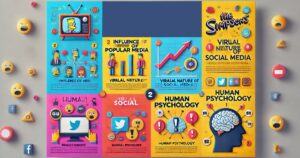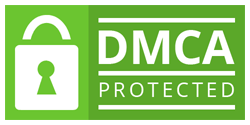Internet Shutdown on January 16: Viral Rumor Debunked
Social media platforms are currently buzzing with a sensational claim that the internet will experience a global blackout on January 16, 2025. This theory, allegedly based on a prediction made by the iconic cartoon The Simpsons, has gone viral across platforms like Instagram and WhatsApp. Videos supporting this claim have created a whirlwind of speculation, sparking concern among netizens. With misinformation spreading rapidly, it’s crucial to uncover the truth behind this viral sensation.
As the date approaches, many question whether the internet is truly at risk of shutting down. Does credible evidence back this claim, or is it another baseless rumor thriving in the digital space? Let’s delve deeper into this assertion’s origins and validity, addressing its impact across digital platforms.
The Origins of the Claim

The claim traces its roots to videos circulating on social media that reference The Simpsons. These videos suggest that the globally renowned show predicted a worldwide internet shutdown on January 16, 2025. In one widely shared clip, a shark is depicted cutting undersea internet cables, triggering a global internet outage. The video further links this event to the swearing-in ceremony of US President-elect Donald Trump.
Supporters of this theory argue that The Simpsons has a history of accurately predicting future events, from technological innovations like smartwatches to major global occurrences. Fans of the show regularly highlight its so-called “predictions,” sparking endless debates online. However, is this claim true, or is it simply a digitally manipulated hoax?
The Role of Social Media in Amplifying the Claim

Social media services have played a significant role in amplifying this baseless claim. Platforms like Instagram, WhatsApp, and even TikTok have seen the rapid spread of edited videos supporting the narrative. These videos are designed to appear convincing, leveraging The Simpsons’ reputation as a pop culture phenomenon known for its uncanny predictions.
For a Digital Marketing Agency, this situation reminds them of the power and potential dangers of viral content. While social media platforms are excellent for spreading awareness, they can also inadvertently fuel misinformation. Agencies and users must adopt a responsible approach to sharing content, ensuring its credibility before hitting the share button.
Debunking the Myth
Experts and fact-checkers have categorically debunked the claim of an impending internet shutdown on January 16. The viral video purportedly showing a Simpsons episode is entirely fabricated. No episode of the show predicts such an event, and the visuals in the circulating video are digitally altered.
Additionally, the claim ties the alleged shutdown to Donald Trump’s inauguration, which is inaccurately stated to occur on January 16. Fact-checkers have clarified that the US President-elect’s inauguration ceremony is scheduled for January 20, not January 16. This critical discrepancy further highlights the fabricated nature of the claim.
From a Digital Marketing Agency perspective, this incident underscores the importance of digital literacy. Educating audiences to identify and question manipulated content is vital in combating the spread of misinformation.
Why Do Such Claims Gain Traction?

Baseless claims like this thrive in the digital space due to a combination of factors:
- The Influence of Popular Media: Shows like The Simpsons have a massive following, making any association with them more believable.
- The Viral Nature of Social Media Services: Algorithms prioritize engaging content, regardless of its accuracy. Sensational claims often generate significant interaction, leading to widespread dissemination.
Human Psychology: People are naturally drawn to mysterious or alarming narratives, often sharing them without verifying their authenticity.attis, pulvinar dapibus leo.
The Takeaway for Businesses and Agencies
This viral claim serves as a case study for businesses and digital marketing professionals. For instance, a Digital Marketing Agency offering social media services must prioritize educating audiences about responsible content sharing. Misinformation can not only harm public trust but also lead to unnecessary panic and confusion.
Agencies should leverage their platforms to promote fact-checked information, reinforcing their role as reliable sources in the digital landscape. For example, a campaign debunking popular myths could engage audiences while fostering trust and credibility.
Conclusion
The claim that the internet will shut down on January 16, 2025, is entirely false. While The Simpsons has a reputation for its uncanny predictions, this particular narrative is a result of digital manipulation. Fact-checkers have exposed the inaccuracies surrounding this claim, including the incorrect date of Donald Trump’s inauguration.
For users and businesses alike, this situation highlights the importance of critical thinking and responsible online behavior. By promoting verified information and leveraging Digital Marketing Agency expertise, we can collectively combat the spread of misinformation, ensuring a more informed and digitally literate community.





